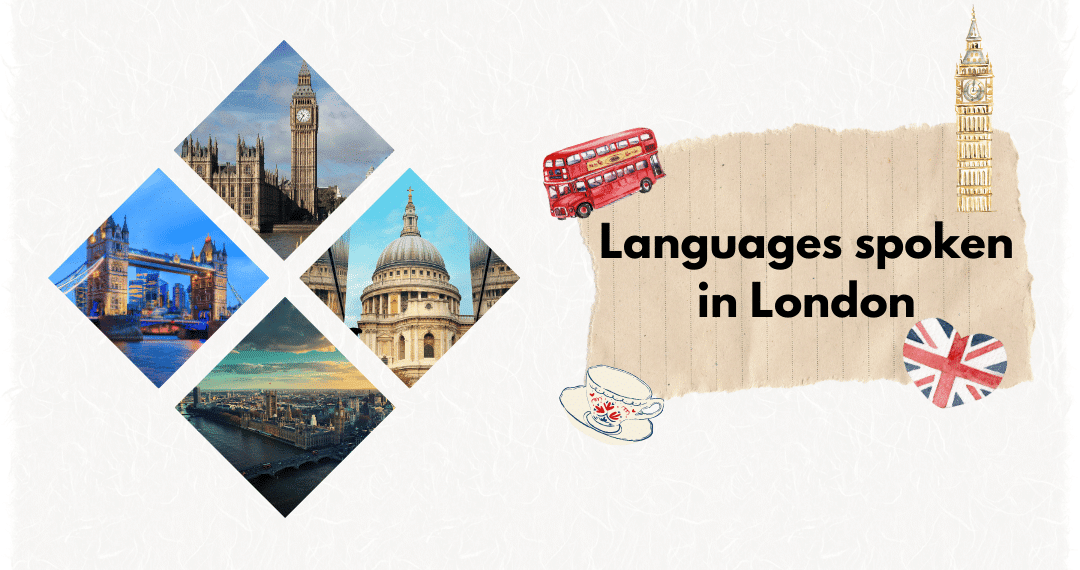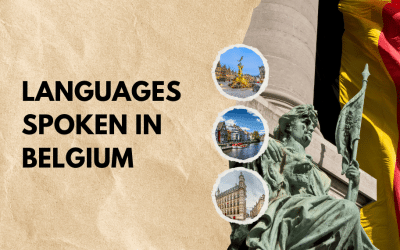London, situated in the southeastern part of England, is a vibrant and diverse city that serves as the bustling capital of the United Kingdom. With a population of roughly 8.8 million people, it stands as one of the most populous urban areas in Europe.
Its prime location along the iconic River Thames has contributed to its rich history as a significant hub for commerce, art, and governance, dating back centuries.
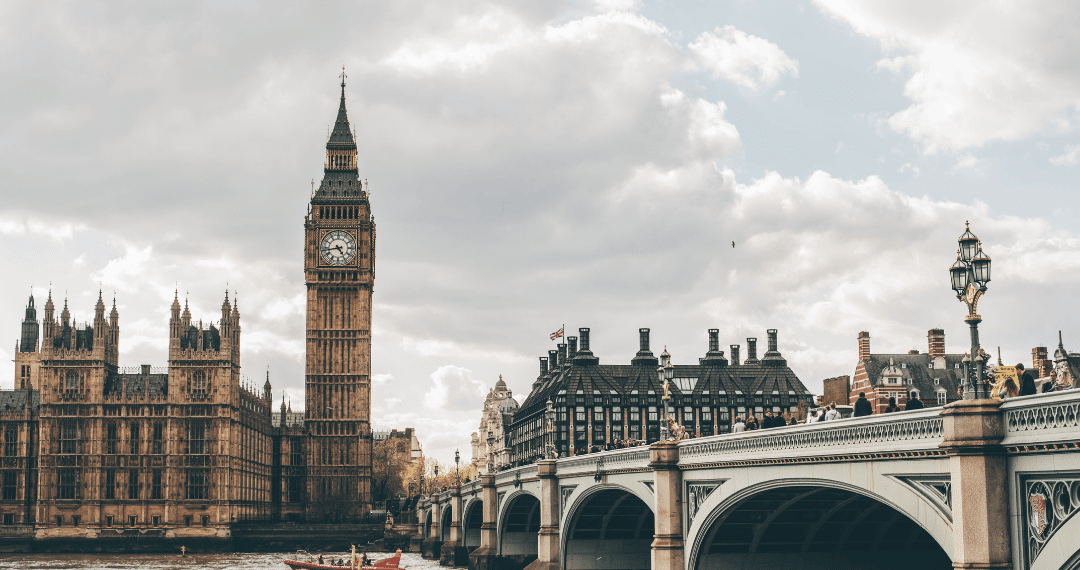
As a global city, London’s geographic position has facilitated its growth into a diverse and dynamic metropolis. Its multicultural population speaks to its status as a melting pot of cultures, with people from around the world calling it home.
London is home to over 300 languages, making it one of the most linguistically diverse cities globally.
Have you ever considered the languages spoken in London? Read on to discover the official and foreign languages spoken in the city.
Looking for Translation services in London ?
Milestone works with native translators with domain expertise to accurately translate your documents into 70+ languages. We provide translation certificates accepted by authorities across the globe.
The official language of London
The official language of London is English and it is also the most widely spoken and a predominant tongue for communication, governance, and daily life.
As the capital city of the United Kingdom, English holds a central position in London’s linguistic landscape, with the vast majority of its residents using it as their primary language.
It’s estimated that nearly 98% of the population in London speak English.
While London is incredibly diverse and home to a multitude of languages spoken by its multicultural population, English serves as the common language that unites the city’s inhabitants. It plays a pivotal role in facilitating social interaction, commerce, education, and cultural exchange, reflecting London’s status as a global city.
Also read: The Languages of UK: Expectations Vs. Reality
Foreign languages spoken in London
In addition to native languages, there are numerous other languages spoken in London. As one of the most multicultural cities globally, it is home to a multitude of immigrant communities, each bringing their languages, traditions, and customs to the city.
This linguistic diversity is evident in neighborhoods throughout the city, where you can hear languages such as Bengali, Polish, Gujarati, Turkish, Urdu, French, and many others being spoken.
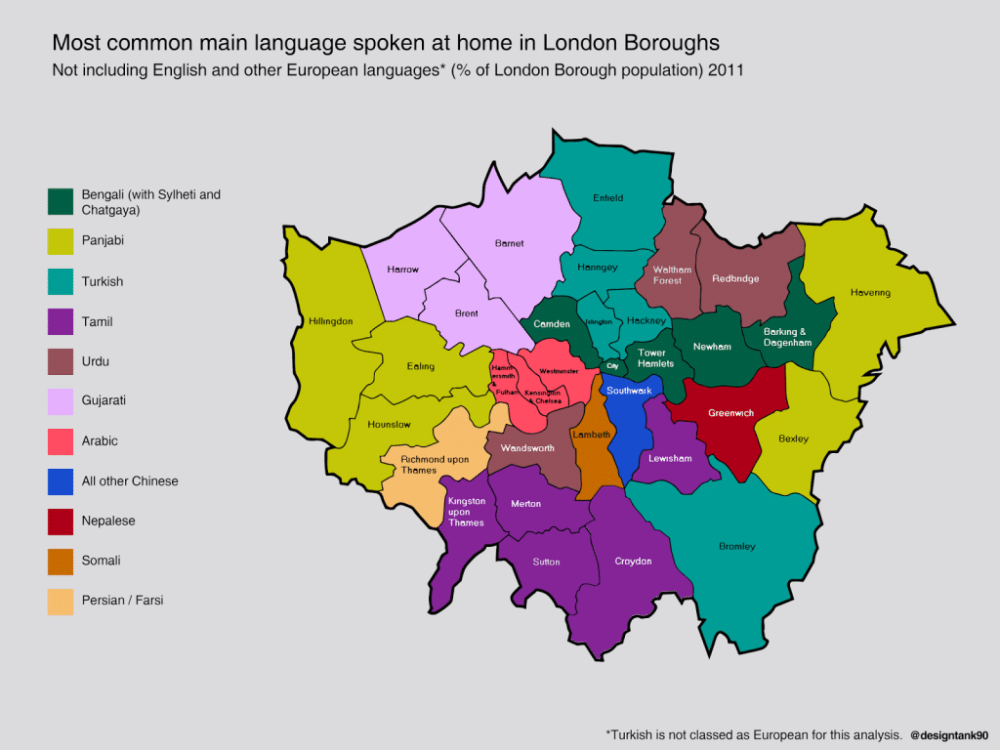
Bengali (Bangla)
Bengali is the second most spoken language in London after English because of the significant presence of the Bangladeshi community. Approximately 71,000 people in London communicate in Bengali, reflecting the language’s cultural significance and strong community ties within the city.
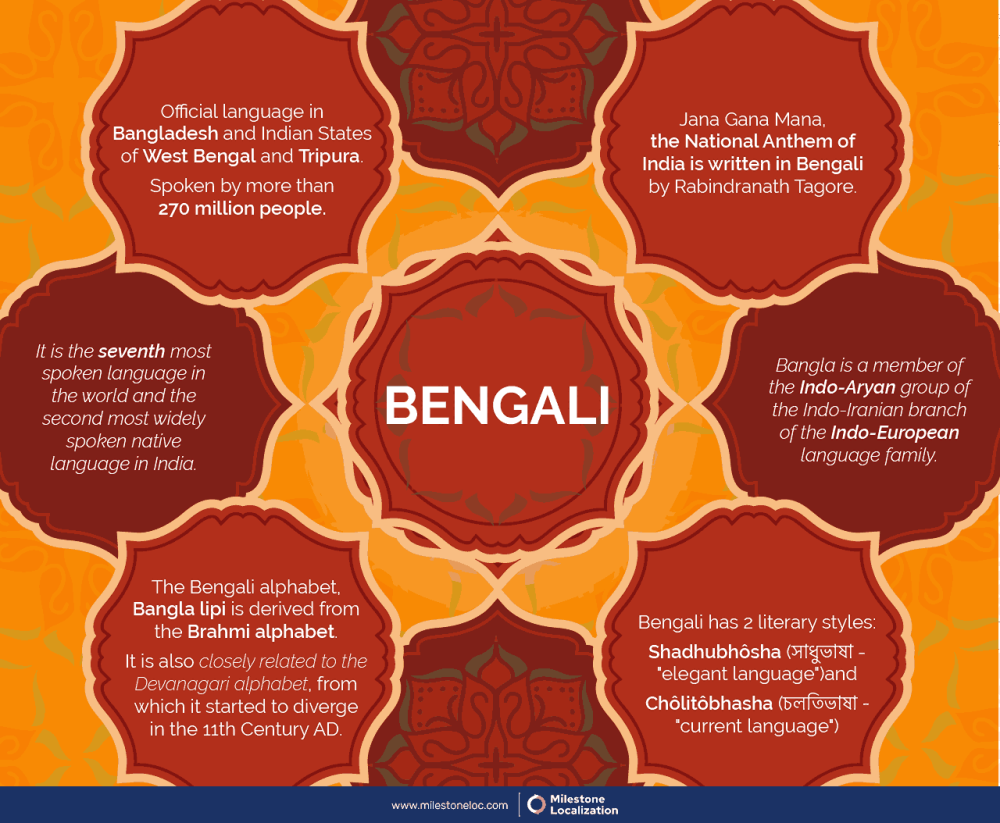
Also read: 10 Interesting Facts About The Bengali Language
Polish
Polish holds a prominent position among the languages spoken in London due to the substantial Polish community residing in the city, which has grown significantly in recent years. An estimated 105,000 individuals in London communicate in Polish, highlighting its widespread use and cultural importance within the community.
Also read: German VS Polish – How Different Are These Two Languages?
Gujarati
The Gujarati language is predominantly spoken by the Gujarati community in London. This language holds deep cultural and linguistic connections to Gujarat, India. Approximately 47,000 people in London are fluent speakers of Gujarati, underscoring its significance within the community and its presence in the city’s linguistic landscape.
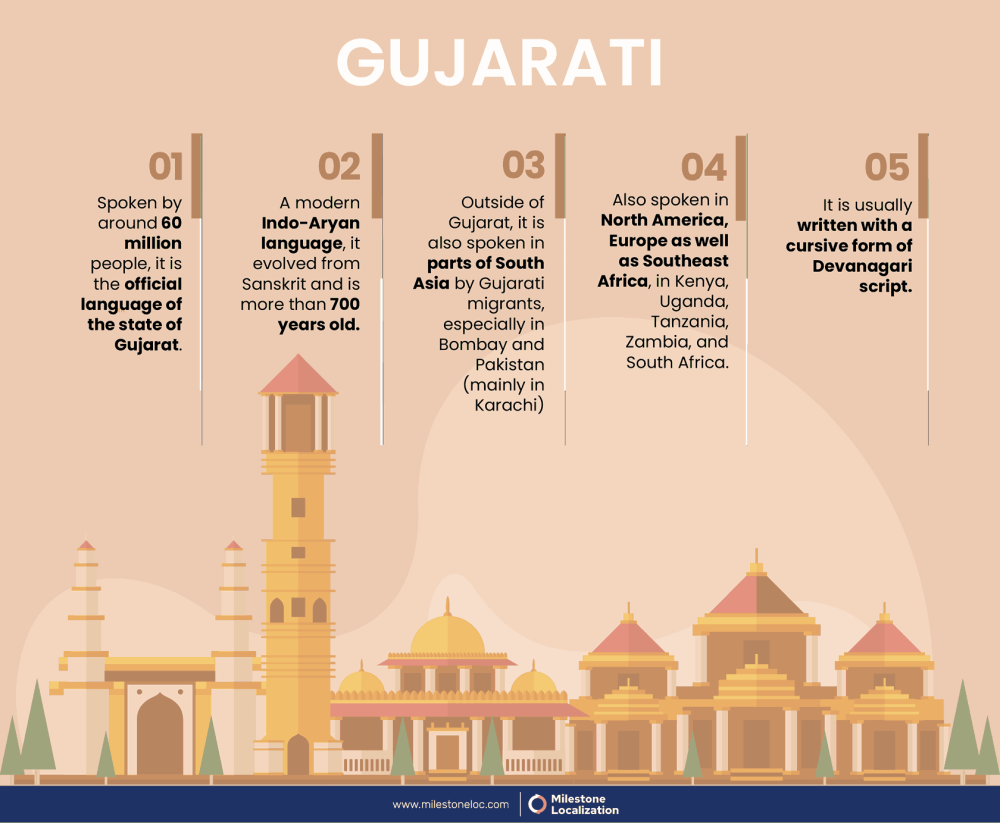
Turkish
The Turkish language is commonly spoken by the Turkish community in London. This reflects historical migration patterns from Turkey to the city. Approximately 45,000 people in London are fluent speakers of Turkish.
Also read: The Languages of Turkey: From Arabic to Zazaki
Urdu
Around 30,000 people living in London speak Urdu. This language holds significant usage among Pakistani residents, living in London.
French
French is widely spoken language in London, mirroring the city’s international diversity and serving as a common language among various communities. Its usage extends beyond everyday interactions to include cultural and diplomatic circles. Approximately 50,000 people in London are fluent speakers of the language.
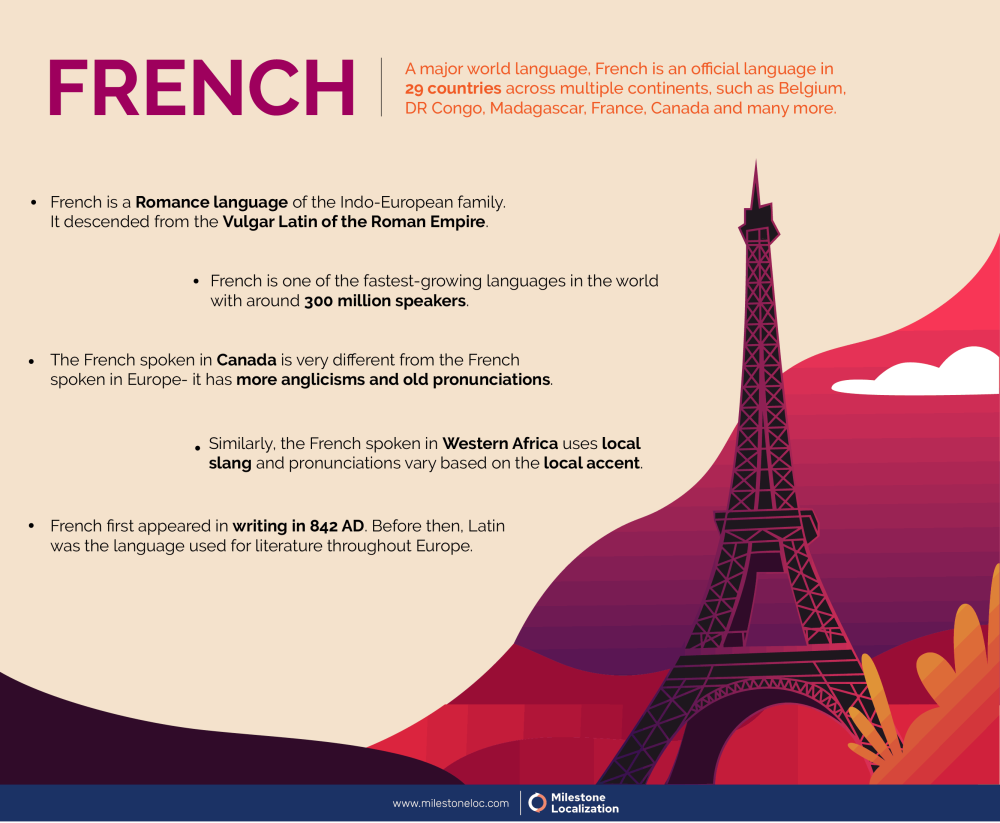
Punjabi
The Punjabi language, originating from the Punjab region of India and Pakistan, has found a vibrant and flourishing community in London. This is primarily due to the significant migration waves that occurred during the mid-20th century when a large number of people from the Indian subcontinent moved to the UK.
In London, Punjabi is spoken among both the Sikh and Muslim communities, who have established a strong cultural presence in the city. Around 35,000 people speak the language.
As a result, Punjabi has become an integral part of London’s linguistic and cultural mosaic, contributing to the city’s rich diversity and multicultural identity.
Arabic
The Arabic language has a rich history and is complex. Its influence can be felt in the diverse cultural tapestry of London, a city known for its mixed cultures. Arabic-speaking communities in London come from various backgrounds, including those from the Middle East, North Africa, and beyond, contributing to the city’s multicultural identity.
In areas such as Edgware Road, often dubbed “Little Arabia,” Arabic signs, shops, and restaurants abound, offering a slice of home for many Arabic speakers. Beyond the social and cultural spheres, Arabic language services, such as translation and interpretation, are increasingly in demand across London’s professional landscapes, including legal, medical, and educational sectors.
This adds to London’s diverse culture and helps people better understand and appreciate Arabic culture and language. Around 30,000 people speak the language in the city.
Spanish
The Spanish language holds a significant presence in the city due to its diverse international population. London, known for its multicultural vibrancy, is home to a substantial Spanish-speaking community, comprised of immigrants from Spain and Latin American countries, as well as Spanish learners and enthusiasts.
This linguistic diversity enriches London’s cultural landscape, contributing to the variety of Spanish language meetups, cultural festivals, and Spanish-speaking businesses scattered across the city. Approximately 45,000 people speak the language.
Additionally, Spanish language courses are popular in schools and colleges, reflecting the growing interest among Londoners to learn Spanish, further solidifying its presence in the city’s linguistic landscape.
Portuguese
A significant Portuguese-speaking community, primarily stemming from Portugal, Brazil, and other Lusophone countries, Portuguese has woven itself into the fabric of London’s linguistic landscape. There are around 40,000 Portuguese speakers in London.
This presence is most palpable in areas like Stockwell, nicknamed “Little Portugal,” where Portuguese cafes, restaurants, and shops line the streets, offering a taste of home to the expatriate community. Language schools and cultural organizations promote the Portuguese language and culture, facilitating integration and cultural exchange.
Looking for Translation services in London ?
Milestone works with native translators with domain expertise to accurately translate your documents into 70+ languages. We provide translation certificates accepted by authorities across the globe.
Language of Business in London
In the vibrant and culturally diverse city of London, the business environment is influenced by a range of languages that mirror its worldwide connections. English remains the predominant business language, serving as the universal medium for corporate communication, negotiation, and documentation.
However, given London’s position as a global financial hub and its multicultural populace, other languages frequently play a crucial role in business interactions.
Among these, Mandarin and Cantonese are increasingly important due to China’s significant role in global commerce.
European languages such as French, German, Spanish, and Italian are also widely used, reflecting the UK’s historical ties and trade relationships within the EU and beyond.
Additionally, Arabic and Russian are notable for their relevance in finance and international trade, particularly with investors and businesses from the Middle East and Russia.
The proficiency in multiple languages among London’s workforce not only facilitates international trade but also enhances cultural understanding and global networking opportunities.
The Growing Importance of Multilingualism in London
London exhibits significantly higher levels of multilingualism than the rest of the UK. The 2011 census revealed that London alone had 90 documented languages spoken.
In any London supermarket queue, a variety of languages can be heard apart from English, including Urdu, Pashto, Somali, Polish, Czech, Yoruba, and Arabic.
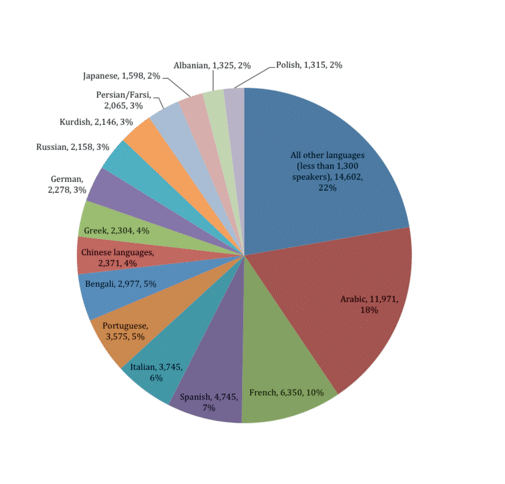
Several educational institutions in London provide students the opportunity to learn a second language and incorporate it as a mandatory part of the curriculum. Options such as French, Italian, and Spanish are available. Students today can benefit from being immersed in a growing multilingual environment.
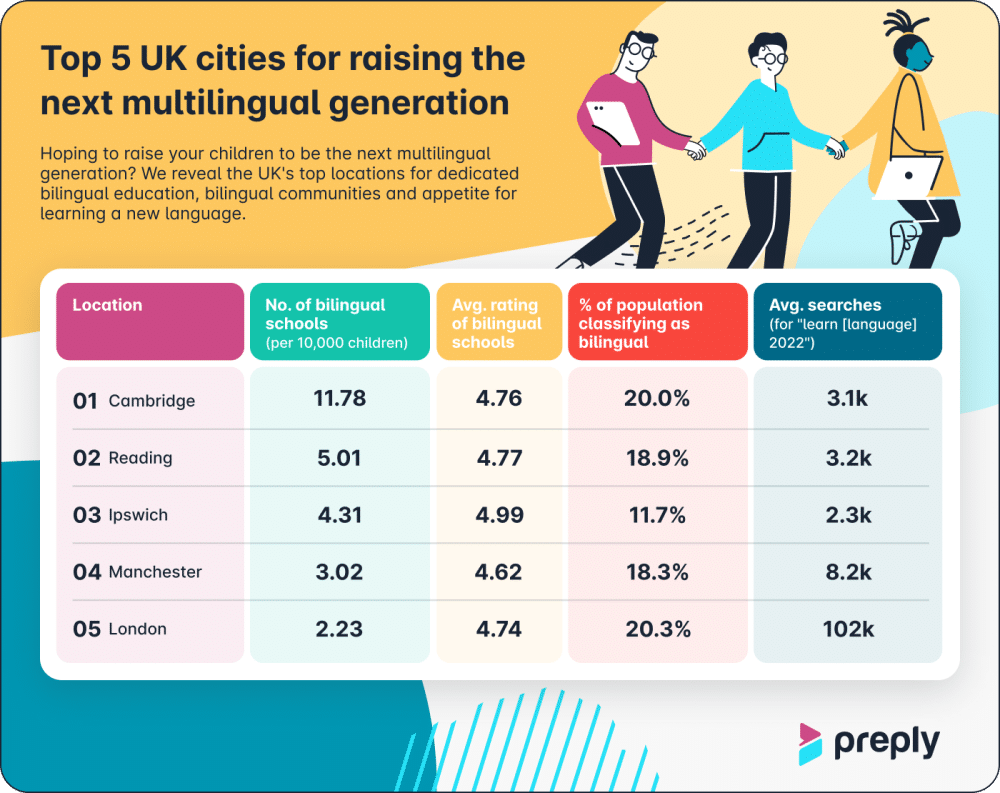
However, the increasing linguistic diversity in London has captured interest and triggered discussions among public service providers, educators, and the community.
This diversity has created a vibrant mix of cultures and traditions woven throughout the city. London’s multiculturalism is not only evident in its languages but also in its dynamic neighbourhoods, diverse cuisine, and wide range of cultural events.
The city acts as a melting pot where individuals from diverse backgrounds can come together, exchange experiences, and embrace their differences. As London progresses as a global city, embracing its multilingualism will further enhance its reputation as an inclusive and welcoming place for everyone.
How clients can benefit from translation agencies in London
Due to the multitude of languages spoken in London, there is a significant need for content in various languages, including Indian and foreign. As a result, translation and localization companies have flourished in the city, attracting both clients and resources.
Among these companies is Milestone Localization, which assists organizations nationwide and globally in translating and localizing content. With a diverse team fluent in multiple languages and more than 25 years of experience, Milestone Localization has collaborated with businesses in 70+ languages to facilitate cross-cultural communication.
Also read: Top Translation Companies in the UK: How to Choose the Best One
Conclusion
London’s linguistic landscape is as diverse and dynamic as its population. From the historical dominance of English to the thriving communities speaking Bengali, Polish, Turkish, and several other languages, the city is a living tapestry of global cultures and voices.
This rich multilingualism not only highlights London’s role as a global hub, but also underscores the importance of language in connecting communities, fostering understanding, and enriching the cultural fabric of one of the world’s most vibrant cities.
As London continues to evolve, the languages spoken within its bounds will undoubtedly continue to reflect the ever-changing story of this great metropolis, embodying its spirit of inclusivity, diversity, and perpetual renewal.
Also read: Top Languages Spoken In Mumbai
Looking for Translation services in London ?
Milestone works with native translators with domain expertise to accurately translate your documents into 70+ languages. We provide translation certificates accepted by authorities across the globe.
FAQS ON TOP Languages spoken in london
How many languages are spoken in London?
London is home to over 300 languages, making it one of the most linguistically diverse cities in the world.
What is the official language of London?
The official language of London is English. It is the most widely spoken language and the primary language for communication, governance, and daily life.
What is the second most spoken language in London after English?
Bengali (Bangla) is the second most spoken language in London, with approximately 71,000 speakers, reflecting the strong presence of the Bangladeshi community.
Why is London considered a multicultural and multilingual city?
London’s diversity stems from its rich history as a global hub for commerce and migration. Immigrant communities bring their languages, traditions, and customs, contributing to the city’s vibrant multiculturalism and linguistic diversity.
What are some of the most spoken foreign languages in London?
Besides English, languages like Polish, Bengali, Gujarati, Turkish, French, Urdu, Punjabi, Arabic, Spanish, and Portuguese are widely spoken in London due to the presence of large immigrant communities.
Why is multilingualism important in London’s business environment?
As a global financial hub, London benefits from multilingualism in business interactions. Languages like Mandarin, Cantonese, Arabic, French, and Spanish play vital roles in international trade, cultural exchange, and enhancing networking opportunities.

